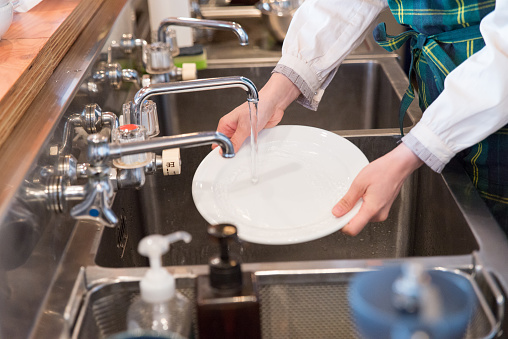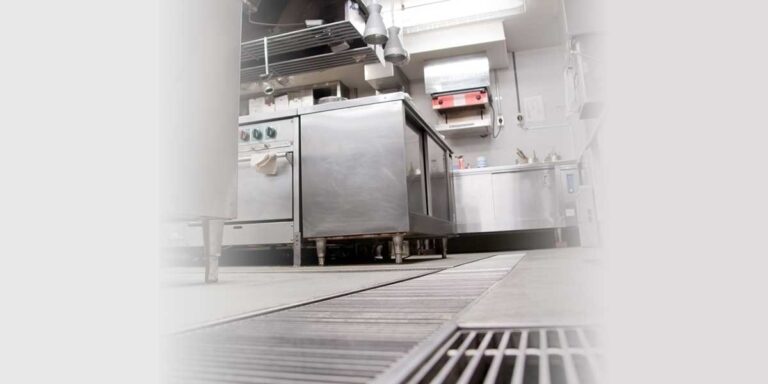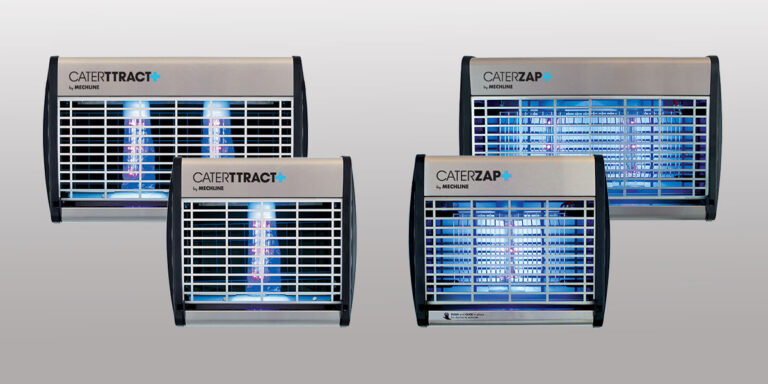As a restaurant owner, if you’ve made it this far in your commercial kitchen career, you probably know the basics regarding what a grease trap is and how it works – but just in case, a grease trap is essentially a receptacle into which wastewater flows, designed to collect or “trap” fats, oils, grease (FOG) to prevent a build-up in the sewerage system.
Grease traps have been around for more than a hundred years and remain a viable option for establishments with commercial kitchens that seek to appease the legal requirement of businesses to prevent FOG from entering drains and sewers. There are, however, a wide variety of FOGS management solutions on the market, all varying greatly in function and effectiveness. In this brief overview of commercial kitchen grease trap guidelines, we outline best practices for fats, oils, grease and starches (FOGS) management in the UK, including recommendations from governing bodies and legal requirements of you as a business owner.
Best practice and guidance
To know what best practice looks like in your establishment, start by thinking about the kind of kitchen you have; everything from the size and scale of your operation, to the equipment you have, the training undertaken by your staff and the kind of foods you prepare and cook. As a starting point, best practice often means having a professional visit your site to review your needs and discuss the best possible solution. This professional should be the party responsible for reviewing, designing, specifying and installing the solution you ultimately implement. The appraisal of your space may seem detailed – but it has one main goal: to develop a system that can prevent virtually all FOGS from entering your drains and clogging up the sewerage system.
There are a range of FOGS management systems out there. Some have units that sit on the floor; others have units installed on the wall. Whichever you choose, as the foodservice operator, you have a responsibility to your staff – and your customers – to ensure your business can accommodate them in a completely safe and hygienic way. Any unit you introduce into your kitchen should be easy to clean and maintain so as to avoid attracting insects, rodents and harmful bacteria.
In many cases, incorporating a complete end-to-end system of complementary technologies will be the best and most effective solution to make sure you are fully compliant.
What is the law?
So, what exactly are the laws around grease traps and FOGS management? As hinted at above, while there are no specific laws stating that you MUST have grease traps installed in your kitchen, there can be hefty fines for any business that is found to be contributing to drain and sewerage blockages. As a business owner, you have a responsibility to seek up-to-date information on the laws affecting your restaurant and what ends up in your drain.
Most business owners will want to avoid adding to these blockages out of a sense of duty, and to prevent problems in their operation, but it’s always worth brushing up on exactly what the laws are in your country. The UK is a vast territory, so it’s important to check which may apply to you, but as a general guideline, here are the rules to look out for:
- If your business serves hot food, your drainage should have a grease separator or other effective means of grease removal fitted. (The Building Regulations 2010 Drainage and waste disposal (2015 edition)). While it’s true that Water and Sewerage Companies (WaSCs) have no authority to insist upon or enforce the selection of any particular FOGS management equipment or systems, they can take action in the event that discharges from specific premises are found to be causing impediments or blockages in the local water system. It is your responsibility as the business owner to put provisions in place to ensure this cannot happen.
- Authorities may seek proof of kitchen waste being collected by a licensed contractor. It is advisable to keep a record of all collections in the event that you are required to demonstrate compliance. (The Environmental Protection Act 1990).
- Allowing food waste-related smells to infiltrate the environment can be viewed as a statutory nuisance. Legal action may be taken against your establishment in such instances. (Environmental Protection Act 1990)
- Leftover cooking oil cannot be sent to a landfill or used for animal feed. Instead, it must be collected by a licensed carrier. (Animal By-Products Regulations).
- Commercial catering businesses can be inspected by their local authority to ensure the satisfactory provision of drainage. You could be required to do work to renew, repair or cleanse the drainage system. (Section 59 of the Building Act 1984)
For more information on legislation relating to FOGS and its management, the Foodservice Equipment Association have put together this essential guide.
Make sure you are up to date with the latest information on regulations for your area and be sure to select trained and trusted installers that can offer advice and guidance on the most appropriate grease trap for your establishment. Ultimately, you want a solution that’s not only going to ensure compliance, but also make maintenance easy and minimise impact to the environment.








